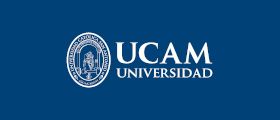Bachelor's Degree in International Relations

Informazioni sul corso
Descrizione
English-Taught Program
International community of students from 155 nationalities
Distinguished Faculty
Spanish Language Courses
Global Networking
Dynamic Learning Environment
The Bachelor's Degree in International Relations offers a comprehensive program designed to address the evolving dynamics of the global landscape. Key features of the program include:
Adaptation to a Shifting Global Order: The program responds to the fast-changing post-war international environment by equipping students with new and updated frameworks for interpretation, diagnosis, analysis, and prediction.
Professional and Ethical Training: Our curriculum focuses on developing citizens and professionals capable of navigating the complexities of the current world order with sound judgment, competence, and effectiveness.
Global Relevance: In countries like Spain, which are deeply interconnected with global trends and sensitive to their impacts, this degree addresses the urgent need for well-trained leaders across various sectors—business, politics, and culture.
Educational Excellence for Global Students: To meet the demands of a rapidly changing world, our Bachelor's Degree in International Relations provides an ideal educational path for students from around the globe seeking to understand and engage with the contemporary international environment.
This program prepares students to not only comprehend global issues but also to contribute meaningfully to international affairs and global governance.
Objectives
Main objective of this bachelor degree is to equip the students to understand, to analyze and to effectively take part in responding to various global issues. Key professional
developments including areas of:
Profound understanding of International Relations' principal theories. Students should familiarize themselves with key theories and concepts in the field of International Relations.
Solid knowledge of world history in a global context, including key events, actors, and processes that shape current global structures.
Strong competencies in international politics and the global economy. Students should learn key components of International Relations, such as international organizations, international law, and global security politics.
Robust ability in critical thinking and analysis. Students should develop the ability to investigate, analyze, and evaluate information from various sources.
Advanced intercultural competencies and foreign language skills, enabling students to navigate the contemporary field of International Relations in a borderless world.
Professional career preparation. The program equips students through dynamic interactions with a highly qualified teaching team, engaging in-class and out-of-class activities, visits, student exchanges, and more.
Development of global citizenship and responsibility. Students will learn the social impacts of political and economic decisions on a global level and how to advocate for social justice and sustainability.
Programma
Introduction to International Relations
International Public Law
International Organizations, Civil society and Global governance
Research Methodology in International Relations
Theology
Contemporary Political Systems
EU Institutions and Integration
World Economic Structure and Underdevelopment
Diplomacy: theory and practice
Actors in International Development Cooperation
2nd Year.
Geography and International Geopolitics: rich world vs poor world
International security: risks, threats and dangers
International development and cooperation: theories and policies
Comparative Politics
Fundamental Ethics
Globalisation and International Trade
International protection of Human Rights
International Security Policy
EU Development cooperation and humanitarian assistance
Climate Change, environmental sustainability and energy resources
Migrations and International Protection
Applied Ethics and Bioethics
3rd Year.
Foreign policy and Public diplomacy in Spain
The EU Common Foreign and Security Policy
The United States: Factors of internal disintegration and Foreign Policy
Ibero-America: factors of ideological dissent and economic integration process
Asia Pacific Area (I): the heyday of China
Russia: the realignment of former Soviet space
Mediterranean Area: Magreb and Middle East
Sub-Saharan Africa: states, conflicts and development
Asia Pacific Area (II): economic integration, geopolitical competition and militarization
Social Doctrine of the Church
Humanities
4rd Year.
Sport as a crucial factor in modern International Relations
International projects management
Leadership management and emotional intelligence
Public Opinion and International Political Communication
Business in a Global Context
International Business Communication
Tourism and Local Development
Business English
Bachelor's final project
Destinatari
You can provide any language proficiency certificate from this list. Any other English certificate will be evaluated individually.
Other entry requirements are:
Scanned biopage of your valid passport.
High School academic transcript, Diploma and national exam result slip
Statement of Purpose/Motivational Letter
Curriculum Vitae
Prospettive di lavoro
Graduates with a Bachelor's degree in International Relations are well-prepared for a diverse range of professions. Their versatile skills and knowledge enable them to pursue careers such as:
Foreign Service Officer/Diplomat: Representing and advocating for their country's interests abroad, engaging in diplomacy and international negotiations.
International Development Expert: Designing and managing development programs within non-governmental organizations (NGOs) to address global challenges.
International Policy Analyst: Analyzing and advising on international policies and their impact on global relations and national interests.
Human Rights Advocate/Specialist: Working to protect and promote human rights through analysis, advocacy, and policy development.
International Law Consultant: Providing expertise in international legal matters, including treaties, trade agreements, and conflict resolution.
Global Trade/Business Specialist: Managing international trade operations, strategies, and compliance for businesses with a global reach.
Non-Profit Manager: Leading and managing global non-profit organizations, focusing on international development and humanitarian efforts.
International Project Manager: Overseeing and coordinating international projects, ensuring successful implementation and adherence to global standards.
Multinational Company Professional: Engaging in various roles within multinational corporations, including management, strategy, and international relations.
Political Consultant: Advising on political strategy, policy development, and campaign management within the international arena.
International Representative: Acting as a liaison for organizations or governments in international settings, facilitating relationships and negotiations.
International Affairs Specialist: Providing expertise on international relations issues, including diplomacy, security, and global cooperation.
Humanitarian and Voluntary Service Professional: Participating in or managing humanitarian missions and voluntary services to support global communities in need.
Luogo in cui si tiene il corso

